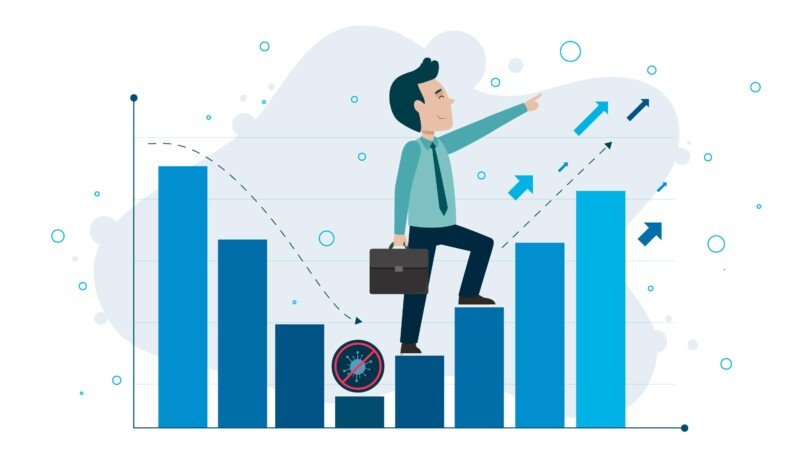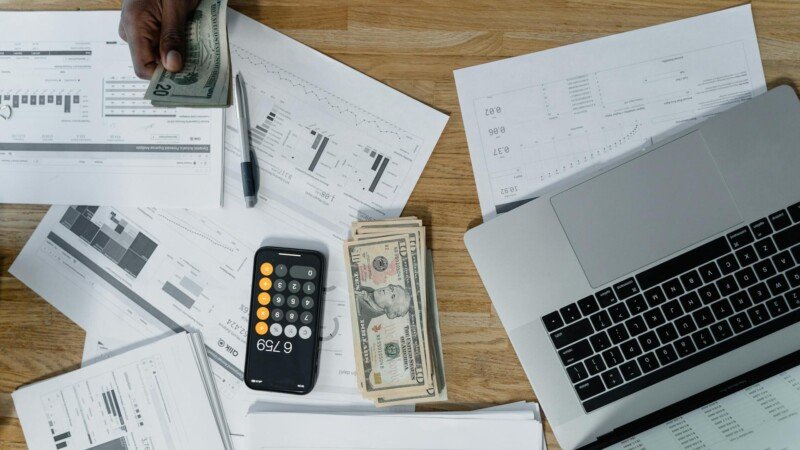5 Rules to Be Financially Ready in the Case of an Economic Crisis
While it may appear that the worst effects of the Global Financial Crisis have passed, there are still some unique shockwaves that could rock the safety of your world if you’re not prepared. Firstly, think about how you would survive if there was a total economic collapse. Look at your assets and liabilities and consider how quickly you could pay off your debt while still being able to pay for the necessities to look after yourself and your family. The answer is probably quite worrying as most of us are spending everything we earn, and in some cases more than we earn, we have high credit card debts and low savings account balances. That is why you need to follow these five rules to prepare yourself and your family to be financially ready for an economic crisis.
1 – Organise your financial documents
Being organised in managing your financial documents such as life insurance policies and your house title can mean you can lay your hands on anything you need in a crisis quickly, and also gives you a chance to review what you have in order and what you may still need to organise. Therefore, buy a filing cabinet in which to store all of your documents, and make sure it is lockable and fire safe.
2 – Reduce your spending
To reduce your spending your first need to look at where your money is going every month. Then you can look at car insurance options which would be cheaper, cutting back your mobile phone plan, reducing your internet plan and asking your credit card provider for a lower interest rate.
At the same time make a plan to get out of debt so that if you are hit by financial crisis you can concentrate on your essential expenses, rather than having to worry about paying off past purchases. Start by raising as much extra cash as you can so you can divert it to your credit card repayments – sell unwanted items, take up a second job and cut down on your spending. Also look at balance transfer credit card options to reduce your interest charges.
Another big debt most people will have is their mortgage, but a mortgage is typically viewed as a good debt, but no debt is good when you are struggling to pay your bills. Therefore, look for ways you can be financially free and pay off your mortgage early. You’ll be able to survive on a much lower income if you can pay off your mortgage, and you’ll be able to use the extra money to grow your wealth and financial security. You can pay off your mortgage earlier by switching to weekly or fortnightly payments instead of monthly repayments, as you make more repayments per year. You can also pay more than the minimum amount of each repayment and this also build up a buffer if you need to skip a few repayments when money is tight.
3 – Increase your savings and reassess your investments
To prepare your finances in case of a crisis, make sure you have saved up at least three months worth of living expenses. The amount you need to save will depend on your circumstances – whether you are a one or two income family, whether you and your partner work at the same company and how much debt you have. Make sure your emergency account has enough to cover the rent or mortgage payments, food bills and utilities.
Once you are debt free and you have your three month emergency account, you shouldn’t stop saving. Instead, your next goal should be to have the ultimate emergency account, where you have 12 months worth of expenses saved. This is the ultimate safety net in case of a financial crisis because while a three to six month emergency fund will usually be enough if you lose your job and need to fund the time between finding a new one, in a serious financial crisis you’re going to need more of a safety net than that. Therefore, save your emergency fund in highly liquid, but also high interest account so it is easily accessible but it’s still a good investment.
You should also assess your investments to prepare your finances in case of an economic crisis, and this could mean converting your liquid investments into silver and gold. If the dollar collapses then having your investments in the form of commodities will protect your money as gold and silver can be exchanged for any currency.
4 – Earn a second income
Most people would face a personal economic crisis if they lost their job, and in an economic crisis that is a possibility. Therefore, it is a good idea to diversify your income earning potential by developing a second income stream. Even if your second income is only a fraction of your primary income, if you were to lose that first income, your second income could help you survive by paying for the essentials.
You could look for a separate part time job such as stacking supermarket shelves or waiting tables, but an independent income stream will be more reliable. Therefore, look for ways you can earn money independently such as mowing lawns or starting a small consulting business based on your skills, whether you are an accountant, a writer, a school teacher or an administrator.
5 – Stockpile
In the case of an economic crisis you want to preserve your finances as much as possible by making as few purchases as possible. Therefore, look at how you can start a stockpile of food and household goods in a way which works for you – you don’t necessarily have to fill the entire garage with canned goods, but you do want to be prepared. Start stockpiling foods which will last and to make sure you can still enjoy fresh fruit and vegetables you can even start a small veggie patch in your backyard to grow your own food. Also don’t forget to stockpile cleaning supplies and toiletries, and water purification tablets and bottled water.
In the aftermath of an economic crisis you can often find yourself in a panic induced disaster too, so also look at purchasing items and valuables such as guns for hunting and personal protection. Also create a first aid kit and a sewing kit so you can look after yourself and your family at home if you need to. It can also be valuable to get to know your neighbors better and build a community around you so that you can work together with other families to survive if you need to. You may also want to stock items which will be valuable to trad with later. When you can learn how to barter you will be able to swap necessities you’ve stockpiled such as wool blankets, soap, boots and duct tape, or luxuries such as chocolate, cigarettes and alcohol, for items you want or need in a crisis.



